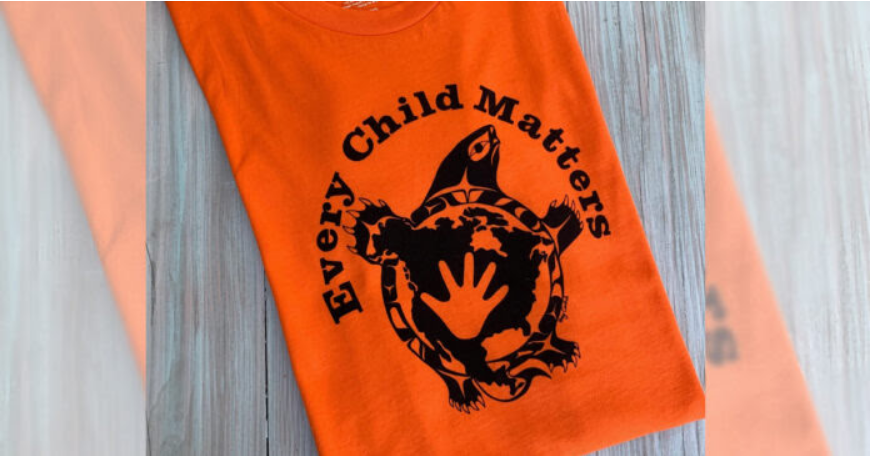Changing a country’s name never raised any eyebrows when it involved third world colonies transitioning to sovereignty, as occurred when many in sub-Saharan Africa and elsewhere after World War II did so. But such transformations have been virtually non-existent when it comes to first world nations. This makes it strange that there hasn’t been any public concern about the bizarre and increasingly formalized renaming of Canada to “Turtle Island.”
Turtle Island is what many Algonquian- and Iroquoian-speaking peoples have long called the entire continent of North America because, in various Indigenous origin stories, a turtle, surrounded by water, is said to support the world.
A few decades ago, Turtle Island was only used by Indigenous activists and their supporters. More recently, this name has gained traction without causing critical reaction from the media, governments, Canadian think tanks, or ordinary citizens.
On the contrary, Canadians have been told that using Turtle Island is necessary for national reconciliation with Indigenous people, resulting in its formal use by universities, churches, and governments across the country. For example:
- In 2022, the University of Manitoba used this name for its first Indigenous Science Conference focusing on Indigenous approaches to understanding the five basic elements – fire, water, earth, air, and spirit – found among many Aboriginal peoples;
- The Anglican Diocese of Rupert’s Land is supporting a group of Indigenous and non-Indigenous parishioners that set out to develop a truly Indigenous Christianity called “the Gospel of and for Turtle Island”;
- The Toronto Zoo has created the Turtle Island Conservation Program;
- Nationwide, many school boards have begun using curricula that teach students about Turtle Island;
- A new atlas, the Indigenous Atlas of Canada, uses Turtle Island in the text and on the maps, but not in the title of the atlas;
- McGill University has recently partnered with CBC to create a program called “Turtle Island Reads,” which broadcasts stories about Indigenous people by Indigenous people; and,
- The Government of Canada has a program called “Turtle Island Staffing” for several departments, National Defense, Health Canada, the RCMP, etc., that began in 2017, and has increased its funding by 84 percent over the last five years.
If you consult a dictionary, you will find that the word “turtle” has Portuguese and Spanish origins, and “island” has a Middle English origin.
You will also find that the first formal name for our country, Canada, comes from the word “Kanata” in the Iroquoian language, meaning “settlement” or “village.” This word has not been translated into English; it is an authentic Indigenous word.
If you widen your view, you will find thousands of other names that have been respectfully borrowed from Indigenous languages, including place names such as Ottawa, Winnipeg, Saskatoon, Kamloops, Inuvik, Manitoba, and Saskatchewan.
Thus, by referring to Canada as “Turtle Island,” we are replacing a long-standing Indigenous word with a two-word name coming from European colonial languages.
How could a transformation from an Indigenous name to a Portuguese/English term ever foster reconciliation? And who ordained that Turtle Island should be considered the new name for Canada?
The answer to both questions is that the new name empowers Indigenous activists over other Canadians who think the old name, Canada, is just fine. Indeed, most Canadians are probably unaware of, even indifferent to, the Indigenous roots of the “Canada” appellation.
When more ordinary Canadians and grassroots Indigenous people begin to question these gratuitous efforts, they will eventually say, “Enough is enough. We want reconciliation, but we will not meet the demand for tens of millions of dollars in compensation to change the names of our country, towns, streets, roads, rivers, and lakes that will not make our lives better or bring us closer together as Canadians.”
If the professional activists and their supporters keep pushing this and other name changes, they will further polarize Canadian citizens into Indigenous vs. non-Indigenous support groups. This process will not end well, especially for ordinary Indigenous people. When countries collapse, as our country indeed could, it is the poor and marginalized — Indigenous groups particularly — who will suffer the most.
It is time to put our resources back into building a united and prosperous Canada. This nation will benefit all its citizens, not just a handful of “Turtle Island” Indigenous elites and their non-Indigenous sycophants.
Rodney A. Clifton is a professor emeritus at the University of Manitoba and a senior fellow at the Frontier Centre for Public Policy. He and Mark DeWolf are the editors of From Truth Comes Reconciliation: An Assessment of the Truth and Reconciliation Commission Report (Frontier Centre for Public Policy, 2021). A second expanded edition will be published by Southerland House Press later this year.
Hymie Rubenstein is a retired professor of anthropology at the University of Manitoba and the editor of REAL Indigenous Report.
Related Items:
Radio – When Did Canada Become Turtle Island? – With Rodney Clifton



